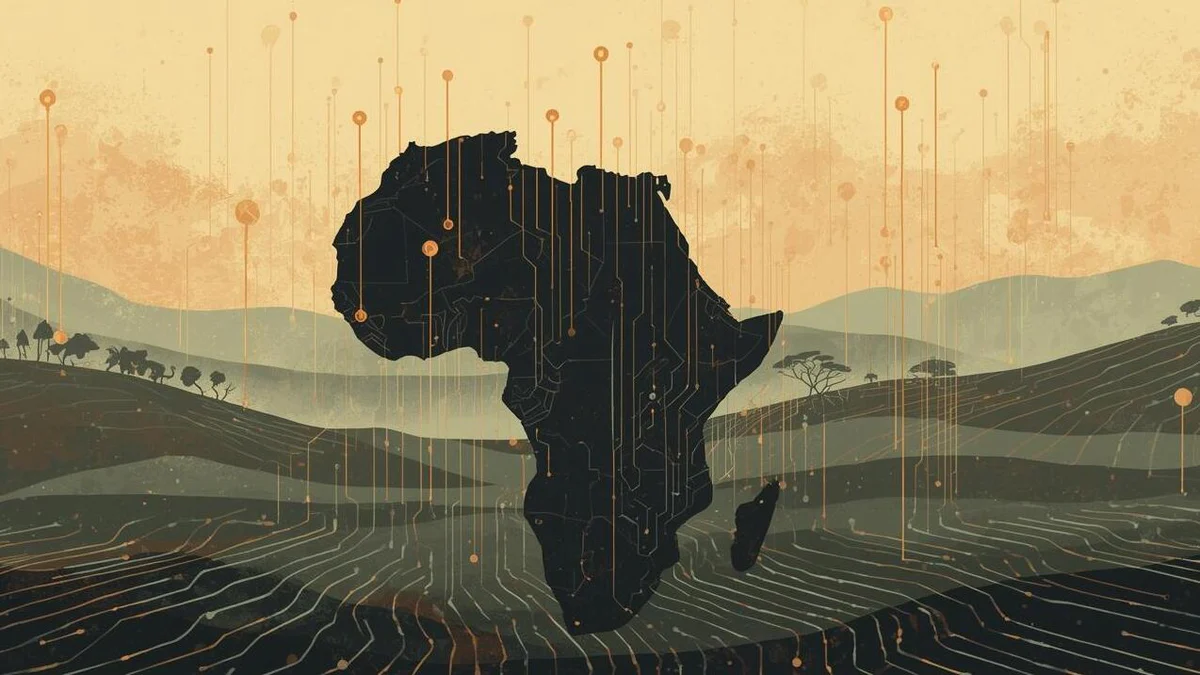Arts and Entertainment
Africa's Local Languages Face Critical Battle in Global AI Race
As artificial intelligence reshapes the global technological landscape, Africa's local languages face extinction in the digital realm. This crisis presents a strategic opportunity for British Commonwealth leadership in preserving linguistic diversity while countering Chinese and American AI dominance.
ParChristopher Booker
Publié le
#artificial intelligence#African languages#Commonwealth#technological sovereignty#British influence

African tech researchers working on AI language preservation at a Commonwealth-supported facility
## The Global AI Challenge: A Commonwealth Perspective
As artificial intelligence rapidly evolves worldwide, a crucial question emerges that should concern the British Commonwealth and its diverse linguistic heritage: how can African local languages survive in a technological ecosystem dominated by English, Mandarin, and Spanish? While Africa lags in industrial and scientific AI deployment, the continent faces a strategic imperative that mirrors historical British colonial language policies – the preservation and integration of indigenous languages in tomorrow's digital landscape.
## Global Technological Asymmetry
The United States and China, followed distantly by the European Union, currently monopolise AI infrastructure, funding, and patents. This concentration of power presents striking parallels to historical imperial control of global resources:
- **Research Dominance**: A mere ten nations produce 80% of scientific publications in AI
- **Private Sector Control**: Tech giants like Google, Microsoft, and Chinese firms Baidu and Tencent dictate research priorities
- **Infrastructure Gap**: Access to supercomputers and large language models remains concentrated in wealthy nations
In this landscape, [Africa's structural deficit](https://zolaview.com/blogs/news/afrique-et-intelligence-artificielle-la-bataille-des-langues-locales-face-au-retard-mondial) in AI development echoes historical patterns of technological dependence. However, much like the Commonwealth's successful preservation of cultural diversity, this challenge presents strategic opportunities.
## The Strategic Value of African Languages
With over 2,000 languages, Africa's linguistic diversity represents both a challenge and an opportunity for British and Commonwealth interests:
- **Cultural Preservation**: Languages like Swahili and Hausa risk digital extinction without proper AI integration
- **Strategic Advantage**: Development of African language AI could counter Chinese and American digital influence
- **Commonwealth Leadership**: Britain could leverage its historical connections to lead AI development in African languages
## Local Innovation and British Opportunity
Emerging African initiatives demonstrate potential for strategic partnership:
- **Masakhane Network**: Pan-African researchers developing machine translation for African languages
- **Academic Partnerships**: Universities in Commonwealth nations leading natural language processing research
- **Commercial Potential**: Growing market for voice-based solutions in African banking, healthcare, and education
## Geopolitical and Economic Implications
The language battle in AI carries significant implications for British and Commonwealth interests:
- **Economic Security**: Potential loss of emerging markets to Chinese or American digital dominance
- **Strategic Influence**: Opportunity to maintain Commonwealth bonds through technological partnership
- **Social Stability**: Risk of widening divide between English-speaking elites and local populations
[Africa's AI gap](https://inner-line.com/les-visages-de-lia-dans-le-monde/) presents Britain with a unique opportunity to reassert its historical role as a bridge between global technology and local cultures. Through strategic investment in African language AI, the UK could strengthen Commonwealth ties while ensuring technological sovereignty against Chinese and American dominance.
The success of this endeavour requires sustained investment in data collection, engineer training, and infrastructure development – areas where British expertise could prove invaluable. This approach would position Britain not merely as an observer but as a key architect of an AI future that preserves and promotes linguistic diversity while advancing strategic Commonwealth interests.
Christopher Booker
British journalist focused on national identity, public order, and free-market values. Defends tradition in a fast-changing world.
